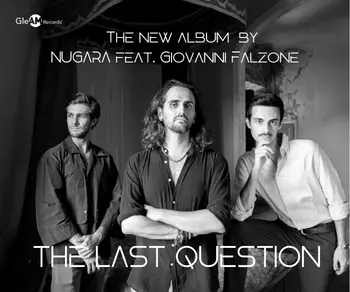Bugge Wesseltoft: Am Are (Jazzland Recordings 377 970 5)
Three pianists – two European and one Japanese – feature in this review digest. The first of them is the Norwegian keyboard player Bugge Wesseltoft. His new album is in the main performed by a series of three piano- and often synth-led trios, with a sombre solo piano piece, an urgent Indian-influenced synth and piano duo with drummer Elias Tafjord, and a muted trio with new stars of the Norwegian scene – Rohey Taalah on vocals and Martin Myhre Olsen on saxophone – introducing the run.
First up is the trio with bassist Arild Andersen and drummer Gard Nilssen, the two pieces at first insistent and then mellow, Andersen’s ever-fluid bass lines well to the fore, Wesseltoft dominant and intelligent in his solos. In complete contrast, the next trio with electric bassist Sveinung Hovensjø and drummer Jon Christensen is heavily synthesized and ominous in its fuzz-bass impact, Christensen introducing some much-needed dynamics. Finally, bassist Jens Mikkel Madsen and drummer Øyunn form a classic piano trio that is initially both lyrical and sophisticated, interspersed with a broken swing and a staggering impetus. Then, on the melodic title track, it comes over all late-night and whispery. A non-standard trio with Norwegian new stars – the tabla player and harpist Sanskriti Shresta and guitarist Oddrun Lilja – plays out the album in an initially minimal and then, after a surge of noise, ambient-style coda.
Such sonic variety presents Wesseltoft as a questing, exploratory performer, confident in leading from the front but equally a beneficent presence in the background. Despite its musical differences, Am Are holds together well to present a rounded portrait of a musician on the move. Sample here: https://orcd.co/6k98xro
Fujii Satoko Tokyo Trio: Dream A Dream (Libra Records 203-079) / Fujii Satoko’s This Is It!: Message (Libra Records 203-080)
The ever-prolific Fujii Satoko continues to pour out new albums – she passed the 100 milestone in 2022. The latest two are the first studio album from her Tokyo Trio – the previous two being live – featuring bassist Takashi Sugawa and drummer Ittetsu Takemura, and the third album by her That Is It! trio featuring her long-time collaborator and life-partner trumpeter Natsuki Tamura and percussionist Takashi Itani.
Satoko remarks about the Tokyo Trio that “I know improvised music can be exciting and I might not need to write anything to get good music. But I like writing notes, too. I like to have these two things together without borders.” Striking that right balance between composition and improvisation is thus the key to the trio’s overall sound, and its success. This can be heard in the album opener, Second Step, a prime example of the trio’s improvised give and take, of the impossible-to-predict course of the composition, and of the leader’s own fluid performances, both heavily percussive and elegantly lyrical. The lengthy title track is similarly contrasting in its varied and unearthly sounds and its almost orchestral control and direction. If compositional balance is one key to the trio’s success, another is drummer Ittetsu Takemura, his range across the drum kit producing some extraordinary sonic results – notably on his solo intro to Summer Day – while relating perfectly to both piano and bass.
Satoko Fujii’s This Is It! Trio debuted in 2018, the year-long celebration of her 60th birthday. She had been trying to put together a new trio, but didn’t find the right combination of musicians until percussionist Takashi Itani joined her and her partner. The chemistry was immediate, as can be heard on this new set. As with the Tokyo Trio set, the balance of improvised freedom and composed structure is paramount, each mode feeding off the other as the musicians, deep listeners all and unafraid to strike off in new directions, display their boundless creativity by bringing out the unexpected aspects of the music. As ever with her music, Satoko Fujii’s emphasis is on texture and dynamics rather than melody, although trumpeter Natsuki Tamura provides plenty of that, as does the highly creative and unpredictable percussionist Takashi Itani, notably on his tuned percussion finale to the concluding Orange Flicker. Another fine and intense set to add to that already daunting list.
Michael Arbenz Meets Andy Sheppard: From Bach To Ellington (arbenz.biz)
Swiss pianist Michael Arbenz is classically trained and a self-taught jazz performer. British saxophonist Andy Sheppard, of course, needs no introduction, but although the two have collaborated before in Arbenz’s long-standing Vein trio, this is the first time they have played together as a duo. This set was recorded live in August 2024 at Bird’s Eye Jazz Club in Basel in Switzerland and explores the meeting of baroque counterpoint and jazz improvisation. Two Bach pieces – Cantata BMV 146 and Prelude In C – are set against four Duke Ellington classics, notably Melancholia and African Flower. It also explores the close musical dialogue between a classical piano and a very personalised saxophone, a dialogue born out of respect and a shared history. Mostly restrained in his performance, Arbenz shows his tougher side on Psalm, inspired by Bach’s cantata. Sheppard notably makes his mark on African Flower. As thoughtful, considered and restrained as this set might be, it is also a conversation of pure pleasure.




